Politics
No peace: Trump’s smoldering Nobel obsession
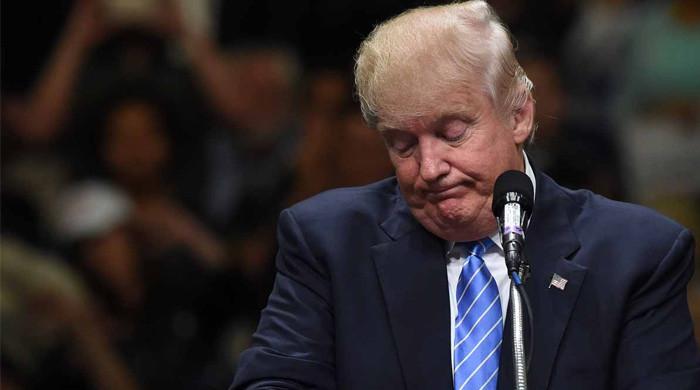
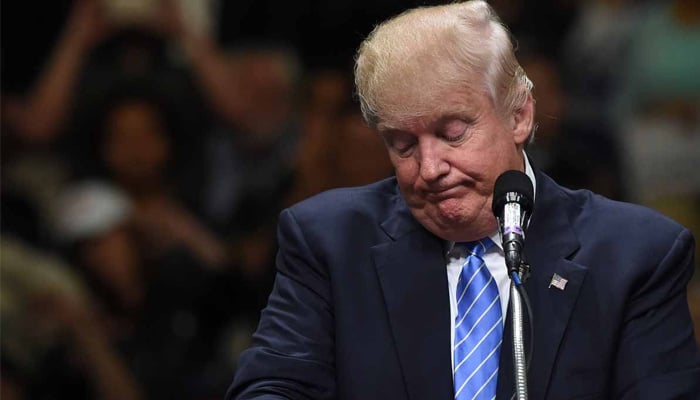
Donald Trump has made no secret of the fact that he is obsessed with winning the Nobel Peace Prize. But so far the award has eluded him throughout his two US presidencies.
Trump’s push for the prize, whose 2025 winner will be named on Friday, is fueled by a potent mix of a desire for prestige and a long rivalry with former president Barack Obama.
Sometimes Trump, who is often better known for his divisive rhetoric, anti-migration drive and embrace of foreign authoritarians, has appeared to acknowledge that he is an unlikely candidate.
“Will you get the Nobel Prize? Absolutely not. They’ll give it to some guy that didn’t do a damn thing,” Trump said during a speech to hundreds of the US military’s top officers in September.
But in the same breath Trump revealed his true feelings.
“It’d be a big insult to our country, I will tell you that. I don’t want it, I want the country to get it. It should get it because there’s never been anything like it,” he said at the same gathering.
‘Seven wars’
As the Norwegian committee’s announcement has drawn nearer, the steady drumbeat of Trump’s campaigning for the peace prize has intensified to unprecedented levels.
In recent weeks, barely a public event has gone by without Trump bragging about what he says is his role in ending seven wars.
Trump’s administration recently listed them as being between Cambodia and Thailand; Kosovo and Serbia; the Democratic Republic of Congo and Rwanda; Pakistan and India; Israel and Iran; Egypt and Ethiopia; and Armenia and Azerbaijan.
But while Trump has been quick to claim credit for some — for example announcing a ceasefire between nuclear-armed Delhi and Islamabad in May — many of the claims are partial or inaccurate.
Trump has even bombed one of the countries he mentions. He ordered US military strikes on Iran’s nuclear program in June.
But perhaps the biggest issue is that the two main wars that Trump promised to end within days of his inauguration — in Gaza and Ukraine — are still raging.
His push for a deal between US ally Israel and Hamas to end the brutal two-year war in Gaza has reached a climax just days before the Nobel announcement — but is almost certainly too late to sway the committee.
Foreign leaders seeking to curry favor with Trump have been quick to talk up Trump’s chances.
Israeli Prime Minister Benjamin Netanyahu nominated Trump for the prize, as did an Israeli advocacy group campaigning for the release of hostages in Gaza.
Pakistan also nominated Trump while the leaders of several African countries paid tribute to his supposed peacemaking efforts in a visit earlier this year.
Obama rivalry
But while Trump wants international recognition as “peacemaker-in-chief,” there is another driving factor.
Since the beginning of his presidential ambitions 10 years ago, “he has put himself in opposition to Barack Obama, who famously won the Nobel Peace Prize in 2009,” Garret Martin, a professor of international relations at American University, told AFP.
The prize awarded to the Democratic former president, barely nine months after he took office, sparked heated debate — and continues to annoy Republican Trump.
“If I were named Obama I would have had the Nobel Prize given to me in 10 seconds,” Trump complained in October 2024, during the final stretch of the presidential campaign.
Three other US presidents have also won the award: Theodore Roosevelt, Woodrow Wilson, and Jimmy Carter, although Carter won his decades after his presidency for his subsequent peace efforts.
Politics
Saudi King Salman leaves hospital after medical tests
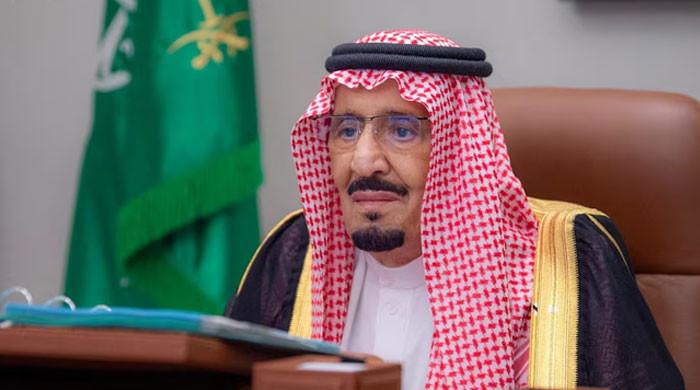
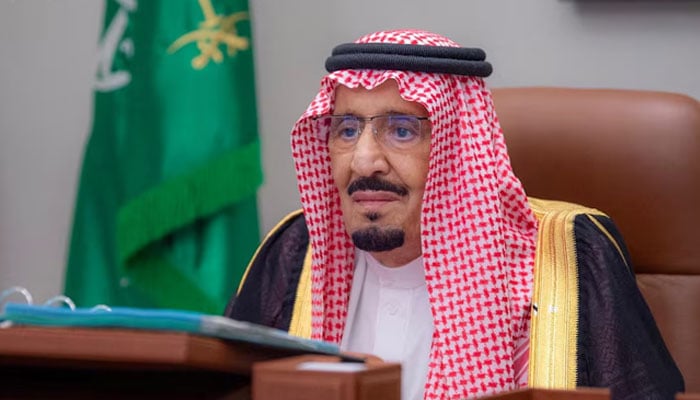
Saudi Arabia’s 90-year-old King Salman was discharged from hospital after undergoing medical tests in the capital Riyadh, the kingdom’s Royal Court said on Friday, adding that the results were “reassuring”.
The monarch “left the King Faisal Specialist Hospital in Riyadh today (Friday) after undergoing medical tests that proved reassuring”, the royal court said in a statement shared on state media, having announced his admission earlier in the day.
Saudi Arabia, the world’s biggest crude oil exporter, has for years sought to quell speculation over King Salman’s health.
He has been on the throne since 2015, though his son Mohammed bin Salman was named crown prince in 2017 and acts as de facto ruler.
The monarch’s well-being is rarely discussed, but he has been admitted for surgery and tests on multiple occasions in recent years.
In 2024, the Royal Court said he suffered from lung infections, which he recovered from.
He was hospitalised in May 2022, when he went in for a colonoscopy and stayed for just over a week for other tests and “some time to rest”, the official Saudi Press Agency reported at the time.
He was also admitted to hospital in March 2022 to undergo what state media described as “successful medical tests” and to change the battery of his pacemaker.
In 2020, he underwent surgery to remove his gall bladder.
Politics
Trump welcomes Iran move on mass executions as turmoil eases
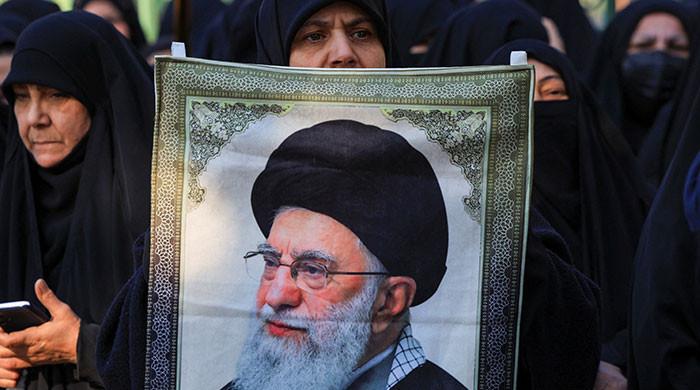
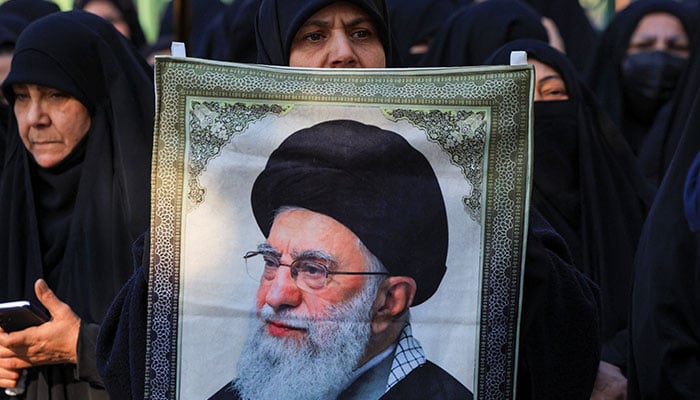
- Trump says Iran cancelled mass hangings of protesters.
- Thanks Tehran, calls move ‘greatly respected’.
- Claims more than 800 executions were scheduled.
DUBAI: US President Donald Trump has thanked Iran’s leaders for cancelling what he said were hundreds of planned executions of protesters after a crackdown.
Taking to his social media platform, he said the mass hangings had been called off and praised Tehran for the move, as deadly unrest across the country appears to be easing after a harsh crackdown.
US President Donald Trump, whose repeated threats to act had included a vow to “take very strong action” if Iran executed protesters, said Tehran’s leaders had called off mass hangings.
“I greatly respect the fact that all scheduled hangings, which were to take place yesterday (Over 800 of them), have been cancelled by the leadership of Iran. Thank you!” he posted on social media.
Iran has not publicly announced plans for such executions or said it had cancelled them.
The protests erupted on December 28 over economic hardship and swelled into widespread demonstrations calling for the end of present rule, culminating in mass violence at the end of last week. According to opposition groups and an Iranian official, more than 2,000 people were killed in the worst domestic unrest since Iran’s 1979 Islamic Revolution.
But several residents of Tehran reached by Reuters said the capital had now been comparatively quiet for four days. Drones were flying over the city, but there had been no sign of major protests on Thursday or Friday. Another resident in a northern city on the Caspian Sea said the streets there also appeared calm. The residents declined to be identified for their safety.
Prospect of US attack retreats
The prospect of a US attack has retreated since Wednesday, when Trump said he had been told killings in Iran were easing. But more US military assets were expected to arrive in the region, showing the continued tensions.
US allies, including Saudi Arabia and Qatar, conducted intense diplomacy with Washington this week to prevent a US strike, warning of repercussions for the wider region that would ultimately impact the United States, a Gulf official said.
Israel’s intelligence chief David Barnea was also in the US on Friday for talks on Iran, according to a source familiar with the matter, and an Israeli military official said the country’s forces were on “peak readiness”.
As an internet blackout eased this week, more accounts of the violence have trickled out.
One woman in Tehran told Reuters by phone that her daughter was killed a week ago after joining a demonstration near their home.
“She was 15 years old. She was not a terrorist, not a rioter. Basij forces followed her as she was trying to return home,” she said, referring to a branch of the security forces often used to quell unrest.
The US is expected to send additional offensive and defensive capabilities to the region, but the exact make-up of those forces and the timing of their arrival was still unclear, a US official said, speaking on condition of anonymity.
The US military’s Central Command declined to comment, saying it does not discuss ship movements.
Pahlavi calls for increased pressure
Reza Pahlavi, the US-based son of Iran’s last shah who has gained increasing prominence as an opposition figure, on Friday urged the international community to ramp up pressure on Tehran to help protesters overthrow the present setup.
“The Iranian people are taking decisive action on the ground. It is now time for the international community to join them fully,” said Pahlavi, whose level of support inside Iran is hard to gauge.
Trump this week appeared to downplay the idea of US backing for Pahlavi, voicing uncertainty that the exiled royal heir who has courted support among Western countries could muster significant backing inside Iran. Pahlavi met US envoy Steve Witkoff last weekend, Axios reported.
Iranian-Kurdish rights group Hengaw said that there had been no protest gatherings since Sunday, but “the security environment remains highly restrictive”.
“Our independent sources confirm a heavy military and security presence in cities and towns where protests previously took place, as well as in several locations that did not experience major demonstrations,” Norway-based Hengaw said in comments to Reuters.
Reports of sporadic unrest
There were, however, still indications of unrest in some areas. Hengaw reported that a female nurse was killed by direct gunfire from government forces during protests in Karaj, west of Tehran. Reuters was not able to independently verify the report.
The state-affiliated Tasnim news outlet reported that rioters had set fire to a local education office in Falavarjan County, in central Isfahan Province, on Thursday.
An elderly resident of a town in Iran’s north-western region, where many Kurdish Iranians live and which has been the focus for many of the biggest flare-ups, said sporadic protests had continued, though not as intensely.
Describing violence earlier in the protests, she said: “I have not seen scenes like that before.”
Video circulating online, which Reuters was able to verify as having been recorded in a forensic medical centre in Tehran, showed dozens of bodies lying on floors and stretchers, most in bags but some uncovered. Reuters could not verify the date of the video.
The state-owned Press TV cited Iran’s police chief as saying calm had been restored across the country.
A death toll reported by US-based rights group HRANA has increased little since Wednesday, now at 2,677 people, including 2,478 protesters and 163 people identified as affiliated with the government.
Reuters has not been able to independently verify the HRANA death toll. An Iranian official told the news agency earlier this week that about 2,000 people had been killed.
The casualty numbers dwarf the death toll from previous bouts of unrest that have been suppressed by the state, including in 2009 and 2022.
Politics
Trump threatens tariffs on nations opposing Greenland takeover
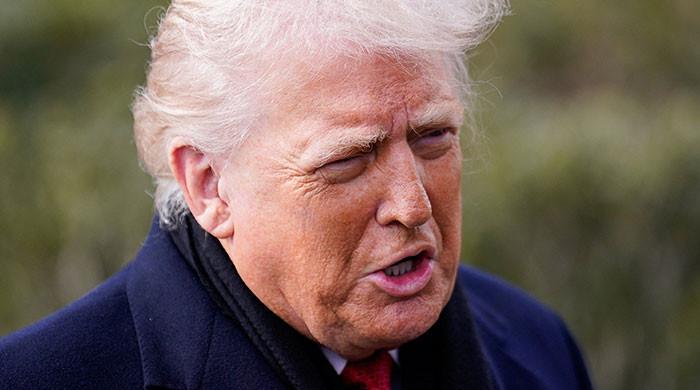
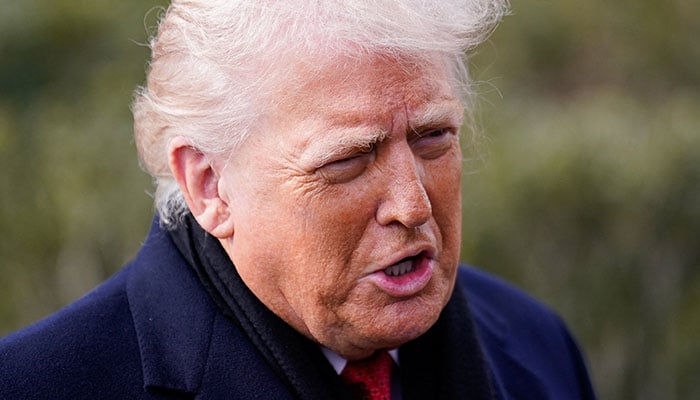
- US lawmakers visit Denmark to back Copenhagen and Greenland.
- Denmark strongly rejects Trump’s takeover idea.
- Lawmakers say most Americans do not support plan.
COPENHAGEN: US President Donald Trump on Friday warned that he could slap tariffs on countries that do not support his Greenland takeover plans, as US Congress members visited Copenhagen to give their backing for Denmark and its autonomous Arctic island.
The bipartisan delegation, on a two-day trip to the Danish capital, said the US president’s long-held territorial ambitions – strongly rejected by Denmark – were not shared by the American people.
Europeans have also been showing their backing for Greenland, in a military reconnaissance mission that a Danish general said Washington was invited to and which was linked to what Russia does after the war in Ukraine.
Trump, again insisting the United States needed mineral-rich Greenland for its “national security”, warned that he “may put a tariff” on countries that oppose that stance.
The 11 visiting US lawmakers held talks with Danish Prime Minister Mette Frederiksen and her Greenlandic counterpart Jens-Frederik Nielsen, as well as Denmark’s foreign and defence ministers, parliamentarians and business leaders.
Republican Senator Lisa Murkowski said there was “good dialogue” and stressed it was important to “nurture” ties between the United States, Denmark and Greenland.
“The vast majority” of Americans do not agree that it is a good idea for the United States to acquire Greenland, she told reporters.
“Greenland needs to be viewed as our ally, not as an asset,” she added.
One idiot
The visit follows a meeting in Washington on Wednesday at which Danish representatives said Copenhagen and Washington were in “fundamental disagreement” over Greenland’s future.
Democratic Senator Chris Coons said the purpose of the Congress members’ visit was to “listen respectfully to our friends, our trusted allies and partners here in Denmark and from Greenland”.
The lawmakers were then to return to the United States “and share those perspectives so that we can lower the temperature and have a more constructive dialogue about the best path forward”, he said.
In Greenland’s capital, Nuuk, residents welcomed the show of support.
“Congress would never approve of a military action in Greenland. It’s just one idiot speaking,” a 39-year-old union representative told AFP.
“If he (Trump) does it, he’ll get impeached or kicked out. If people in Congress want to save their own democracy, they have to step up,” said the union rep, speaking on condition of anonymity.
Demonstrations
Trump has repeatedly criticised Denmark – a NATO ally – for, in his view, not doing enough to ensure Greenland’s security.
The US president has pursued that argument, despite strategically located Greenland – as part of Denmark – being covered by NATO’s security umbrella.
The head of Denmark’s Joint Arctic Command, Major General Soren Andersen, said the United States were invited to the military mission, which he said was “about Russia”.
“When the war in Ukraine is over, hopefully with a good result for Ukraine, it is our expectation that Russia will move the resources they have been using in Ukraine to other theatres, including in the Arctic,” he told AFP.
“So, in order to prepare for that, we simply have to step up, train, and that is what we are doing up here.”
But Andersen said he had not seen any Russian or Chinese combat ships in the area in the two and a half years he has been commander.
Military personnel were more visible in Nuuk on Friday, an AFP journalist said, days after Denmark said it was beefing up its defence on the island.
The White House has said Trump’s aim to take over Greenland would not be affected by the European military presence, which French armed forces minister Alice Rufo said was a sign that the continent was prepared to defend sovereignty.
Britain, Finland, France, Germany, the Netherlands, Norway and Sweden have announced the deployment of small numbers of military personnel to prepare for future exercises in the Arctic.
Large demonstrations are planned across Denmark and Greenland on Saturday to protest against Trump’s plan.
Thousands of people have taken to social networks to say they intend to take part in the protests organised by Greenlandic associations in Nuuk and Copenhagen, Aarhus, Aalborg and Odense.
-

 Tech4 days ago
Tech4 days agoNew Proposed Legislation Would Let Self-Driving Cars Operate in New York State
-

 Sports6 days ago
Sports6 days agoClock is ticking for Frank at Spurs, with dwindling evidence he deserves extra time
-
Sports1 week ago
Commanders go young, promote David Blough to be offensive coordinator
-

 Fashion6 days ago
Fashion6 days agoSouth India cotton yarn gains but market unease over US tariff fears
-

 Entertainment4 days ago
Entertainment4 days agoX (formerly Twitter) recovers after brief global outage affects thousands
-

 Fashion6 days ago
Fashion6 days agoChina’s central bank conducts $157-bn outright reverse repo operation
-

 Business1 week ago
Business1 week agoSoftBank reduces Ola Electric stake to 13.5% from 15.6% – The Times of India
-

 Sports6 days ago
Sports6 days agoUS figure skating power couple makes history with record breaking seventh national championship






